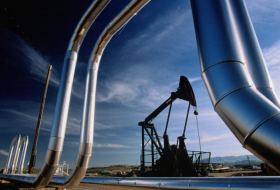So he studied 31 times when there had been such changes and found four out of the five previous mass extinctions took place when the disruption crossed a “threshold of catastrophic change”.
The worst mass extinction of all – the so-called Great Dying some 248 million years ago when 96 per cent of species died out – breached one of these thresholds by the greatest margin.
Based on his analysis of these mass extinctions, Professor Rothman developed a mathematical formula to help predict how much extra carbon could be added to the oceans – which absorb vast amounts from the atmosphere – before triggering a sixth one.
The answer was alarming.
For the figure of 310 gigatons is just 10 gigatons above the figure expected to be emitted by 2100 under the best-case scenario forecast by the Intergovernmental Panel on Climate Change. The worst-case scenario would result in more than 500 gigatons.
Some scientists argue that the sixth mass extinction has already effectively begun. While the total number of species that have disappeared from the planet comes nowhere near the most apocalyptic events of the past, the rate of species loss is comparable.
Professor Rothman stressed that mass extinctions did not necessarily involve dramatic changes to the carbon cycle – as shown by the absence of this during the Late Devonian extinction more than 360 million years ago.
Writing in the journal Science Advances, he noted that events such as volcanic eruptions, climate change and other environmental factors could also play a role.
But he said changes to the carbon cycle – such as the burning of vast amounts of carbon in the form of oil, coal and gas laid down over millions of years – should also be considered.
“The history of the Earth system is a story of change. Some changes are gradual and benign, but others, especially those associated with catastrophic mass extinction, are relatively abrupt and destructive,” Professor Rothman wrote.
“What sets one group apart from the other? Here, I hypothesize that perturbations of Earth’s carbon cycle lead to mass extinction if they exceed either a critical rate at long time scales or a critical size at short time scales.
“By analyzing 31 carbon isotopic events during the past 542 million years, I identify the critical rate with a limit imposed by mass conservation.
“The modern critical size for the marine carbon cycle is roughly similar to the mass of carbon that human activities will likely have added to the oceans by the year 2100.”
The idea that mass extinctions are caused by major environmental changes was suggested about 200 years ago by the famed French naturalist Georges Cuvier.
If these changes are too rapid for the evolution of species, they may die out either as a result of being out-competed by those that can adapt or because they are unable to cope in the new environment.
Already some species of tree are in trouble because the temperature is rising so quickly that they cannot gradually “migrate” – by seeding saplings – uphill to cooler climates.
But scientists also recently described how the Atlantic killifish had evolved extremely quickly to be able to survive toxic pollution off the US east coast that would normally have killed them. They noted that “unfortunately” most species “we care about” were unlikely to be able to do the same.
Professor Rothman said that during his research into previous mass extinctions “it became evident that there was a characteristic rate of change that the system basically didn’t like to go past”.
He said it would probably take thousands of years for any ecological disaster to play out, but that 2100 could be the tipping point at which the world entered “unknown territory”.
“This is not saying that disaster occurs the next day,” Professor Rothman said.
“It’s saying that, if left unchecked, the carbon cycle would move into a realm which would be no longer stable, and would behave in a way that would be difficult to predict.
“In the geologic past, this type of behaviour is associated with mass extinction.”
More about: #extinction
















































